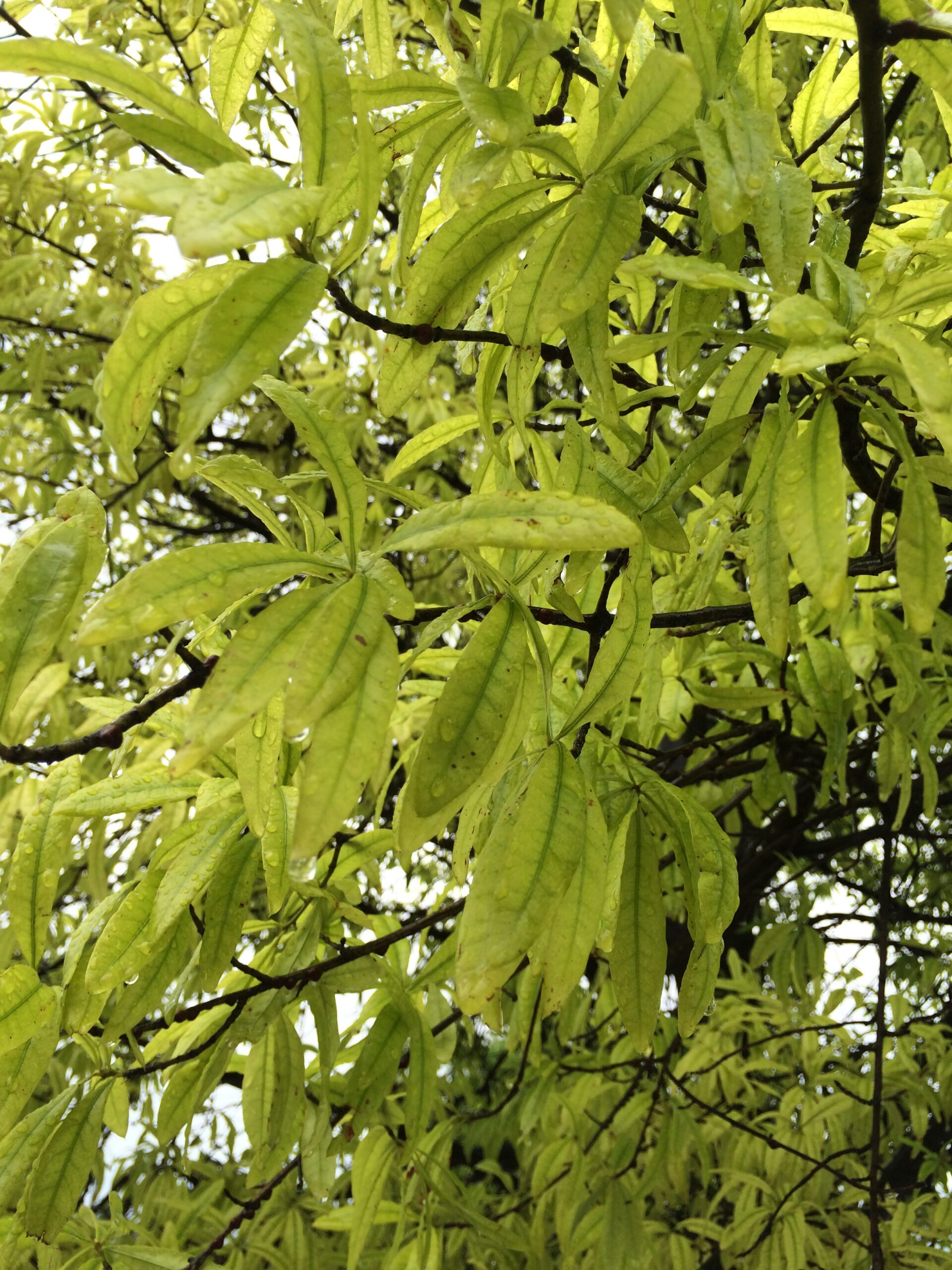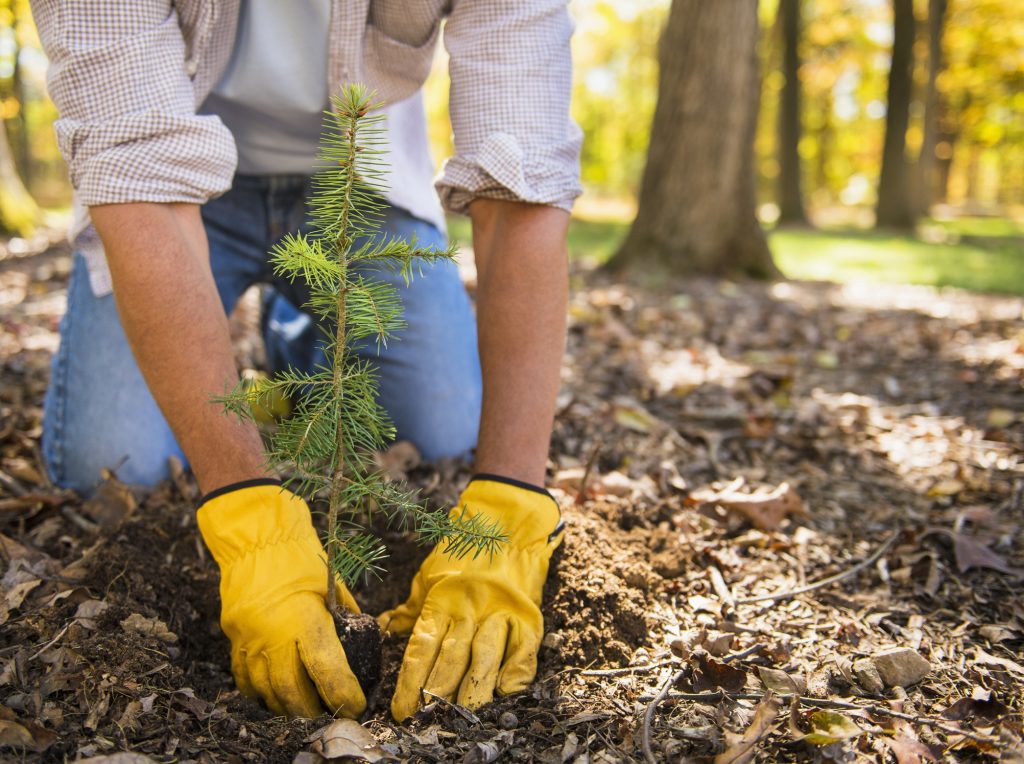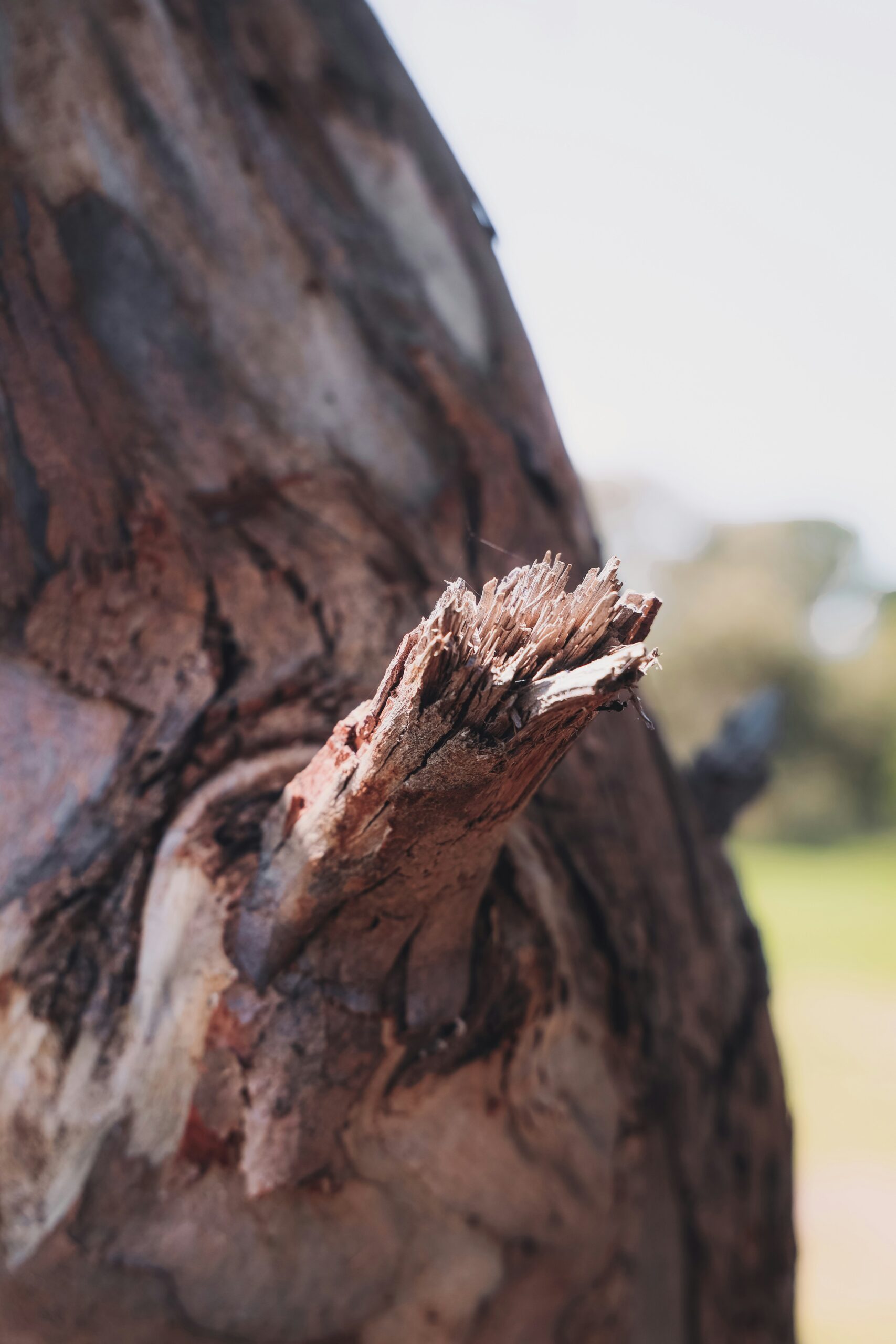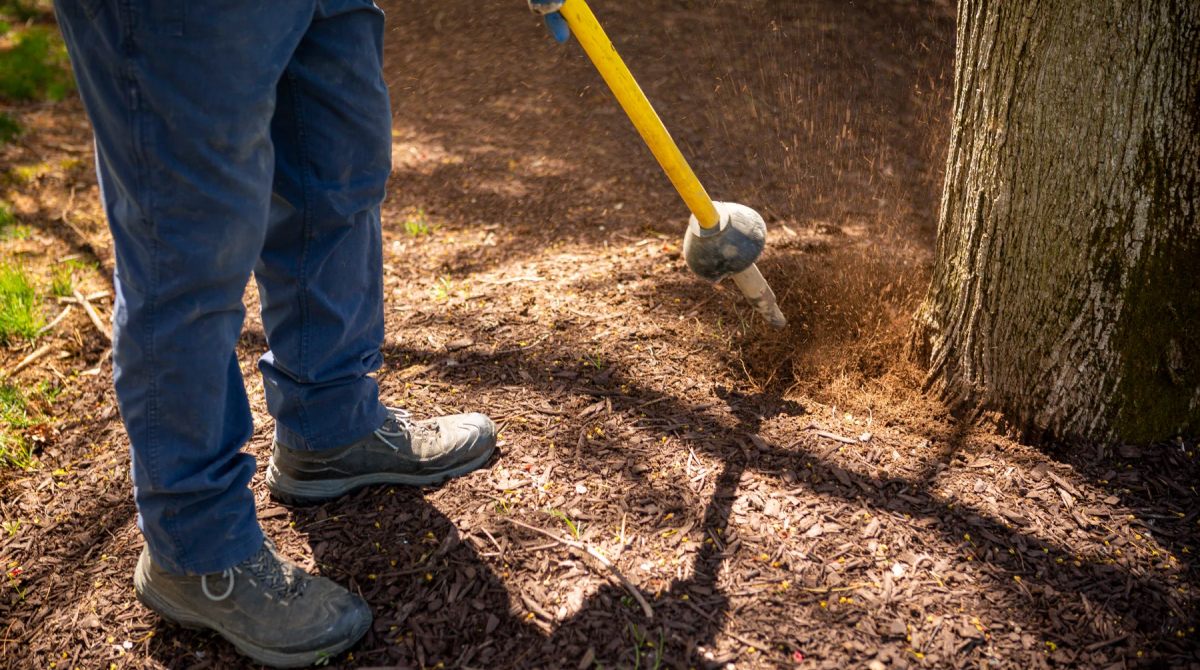
Date October 25, 2022
Category
It’s that time of year again when we all start to reflect on the past twelve months and prepare for the new ones ahead. As we do, let’s not forget about our trees! One of the most important things you can do for your trees in the fall is to treat them for iron chlorosis. In this blog post, we’ll discuss what iron chlorosis is, why it threatens North Texas tree health, and how to treat it. Stay tuned to learn more about iron deficiency in trees and where to find the best tree care company in Dallas to help!
Why is Iron Chlorosis a Problem for North Texas Trees?
About 75% of Texas is covered in alkaline soil. While this isn’t inherently harmful, it means higher amounts of calcium, sodium, and magnesium are in the soil, which can impact its structure. Alkaline soils are formed by calcium carbonate-rich rocks that weather and break down slowly over time. Dallas/Fort Worth is also known to have hard water, which is high in mineral content and contributes to raised pH levels. Higher calcium content also produces chalky, finely textured soils that inhibit oxygen movement. North Texas trees growing in alkaline soils usually suffer from nutrient deficiencies because the higher the pH from neutral, the harder it is for trees to absorb nutrients like iron and manganese.
What Causes Iron Chlorosis in Trees?
If you’re up to date about North Texas tree health, you know the severity of iron chlorosis. Chlorosis is the yellowing of leaves due to a lack of chlorophyll. Chlorophyll is the green pigment that plants use to make food during photosynthesis, and the enzymes involved in chlorophyll formation require iron. When iron is low, chlorosis occurs on leaves, inhibiting the food-production process and causing trees to decline and die.
Iron chlorosis is a symptom of poor tree health, not the cause. Trees growing in alkaline soil often suffer from a lack of iron. This may be because there is not enough of it in the soil; however, it’s more likely that there is an abundance of iron, but it becomes unavailable to trees due to the soil structure and the inability of tree roots to absorb it. Over-watering, over-fertilizing, soil compaction, construction, and pesticide damage can also contribute to iron chlorosis.
For more information on iron chlorosis, check out our blogs:
The Cause of Yellowing Tree Leaves – Iron Chlorosis
How Do You Treat Iron Chlorosis in Trees?
What’s the Best Chlorosis Treatment for Trees?
The main methods for treating iron chlorosis in North Texas trees are
Foliar spray – a mixture of ferrous sulfate or chelated iron is sprayed directly on the leaves of affected plants. This method produces quick, noticeable results but is typically a temporary fix. Multiple applications may be required if the problem persists, which can be difficult if the tree is large with a spreading canopy.
Trunk injection – ferric ammonium citrate or iron sulfate in dry or liquid forms can be drilled into the lower part of the trunk. This is the most effective and long-lasting technique used by ISA Certified Arborists, but attempting such an invasive procedure can easily damage your tree’s trunk and tissue without the proper skills of a tree care expert.
Soil application – a viable treatment for small areas and residential landscapes in which a solution of elemental sulfur and iron sulfates or iron chelates is applied in the soil around the tree below its drip line.
Since chlorosis is a term to describe a variety of nutrient deficiencies that several factors can cause, it’s critical to determine the cause before proceeding with chlorosis treatment. If you’re worried your trees are suffering from iron chlorosis, contact an ISA Certified Arborist immediately. Our Dallas tree care specialists conduct tree health diagnoses, soil testing, and more to determine the cause of your sick tree. Afterward, we’ll provide a comprehensive treatment and maintenance plan to ensure your tree stays healthy and strong year-round.
When to Treat Iron Chlorosis
Iron chlorosis is a prevalent tree disease in North Texas and can kill trees if left untreated. Fortunately, fall is the perfect time to schedule a consultation with a TreeNewal ISA Certified Arborist for professional treatment. As the leading experts in Dallas tree care, our dedicated team has extensive experience identifying the causes of iron deficiency in trees and how to professionally apply treatments that maximize effectiveness and benefit your tree’s long-term health. Call (817) 592-6846 for a consultation today!
Dallas/Fort Worth Tree Care
As a Dallas-based tree care company, TreeNewal does more than just provide industry-leading tree care, we’re here to serve our beloved community. By giving our North Texas trees proper care and maintenance through routine tree services and treating them for iron chlorosis when necessary, we can promote a greener, more sustainable DFW community. For help with tree trimming and pruning, tree nutrition, tree disease and insect management, soil conditioning, and more, contact our ISA Certified Arborists to get started.
TreeNewal is a full-service sustainable tree care company offering residential and commercial tree services in Dallas, Argyle, Denton, Fort Worth, Flower Mound, Southlake, and Westlake. Contact our Dallas tree care specialists at (817) 592-6846 and enjoy tailored tree care advice and the best tree health services in North Texas!
To learn more about North Texas Tree Health Focus: Iron Chlorosis?, call our Argyle and Southlake-based teams
at (817) 592-6846 or send us a message.
We’re a little different than the average tree services company.
Learn more about TreeNewal’s ISA Certified Arborists!
Our Dallas/Fort Worth-based tree doctors can explain how sustainable tree care services add more value to your bottom line.
Healthy trees, healthy lives.








